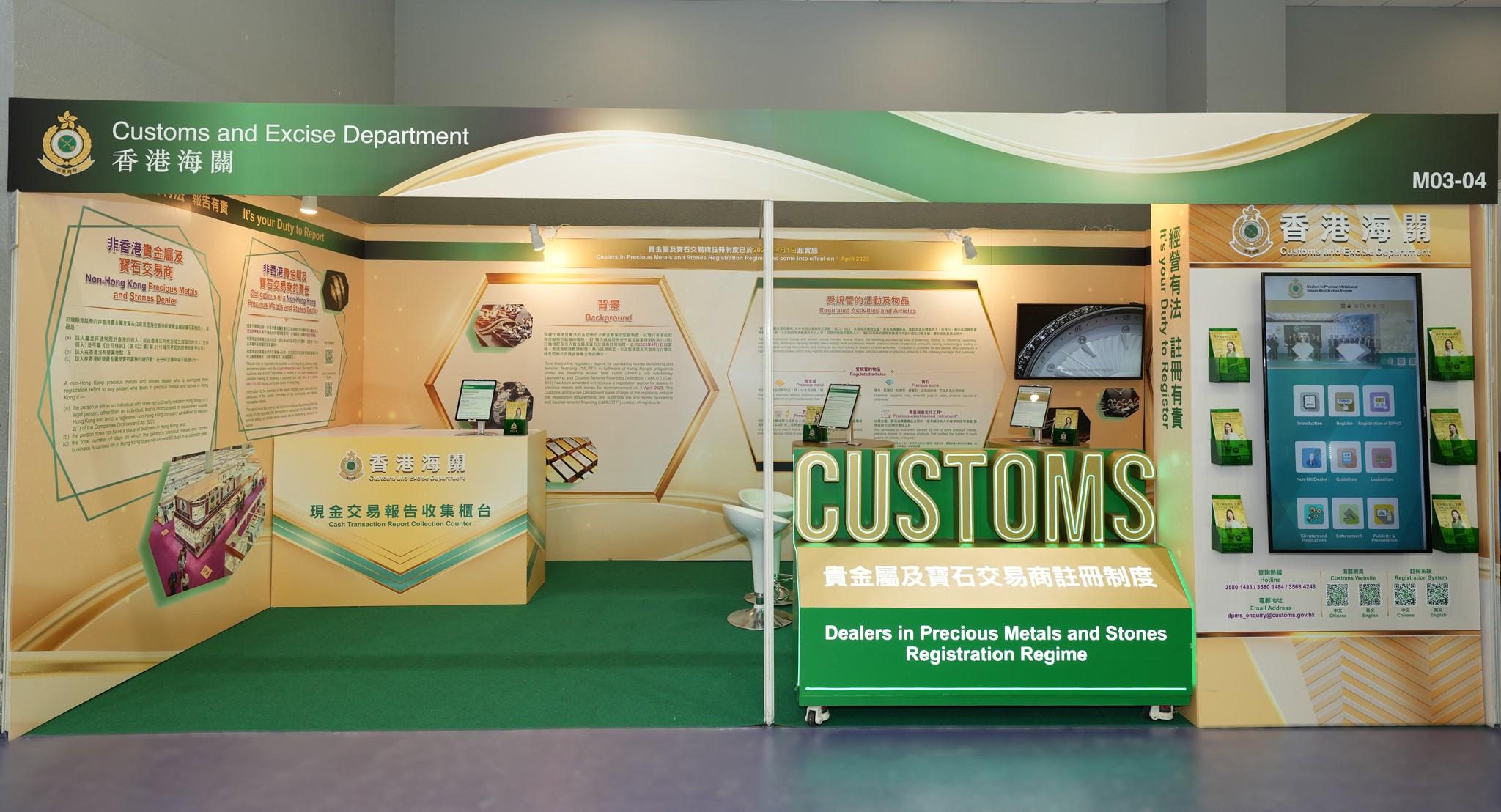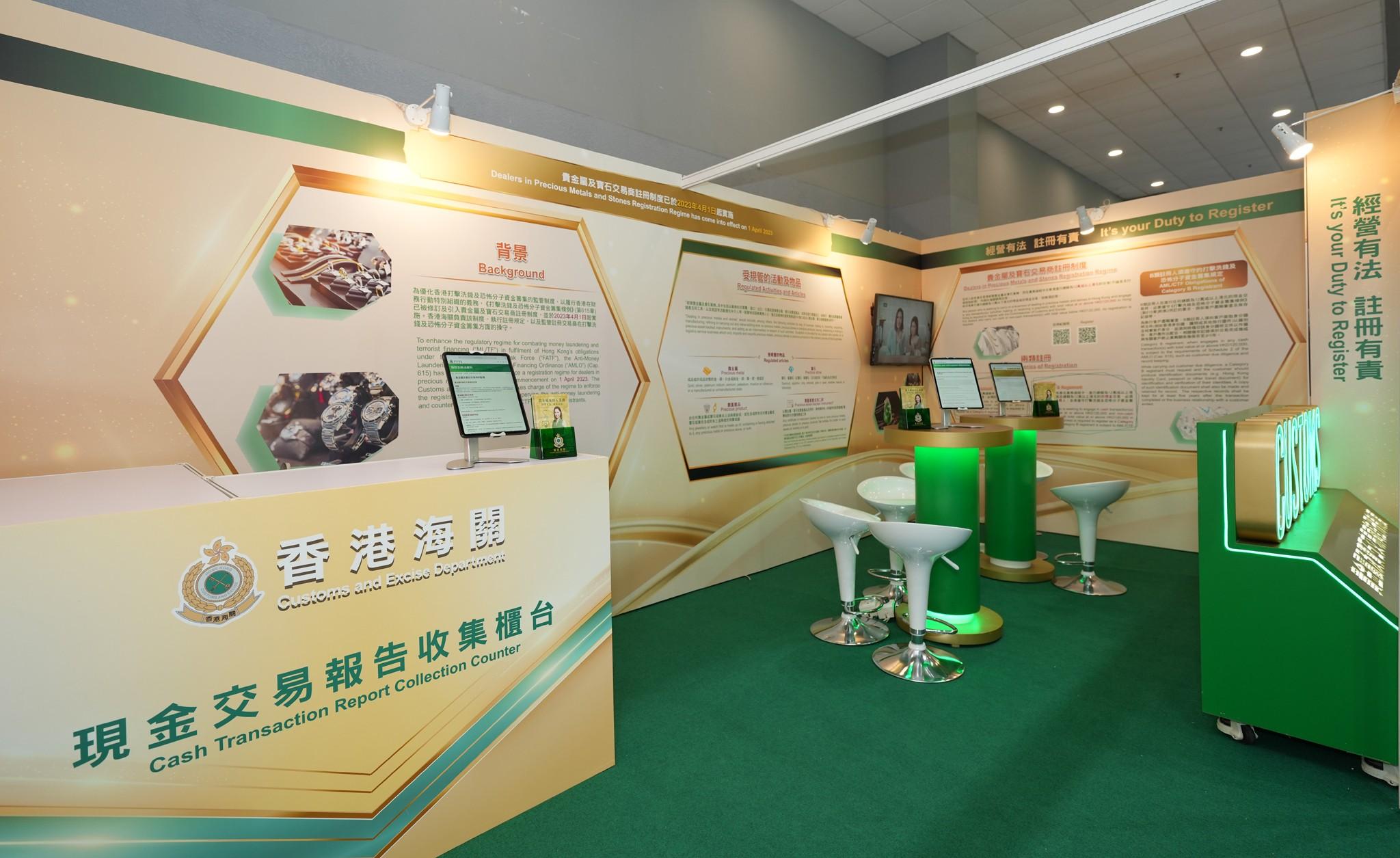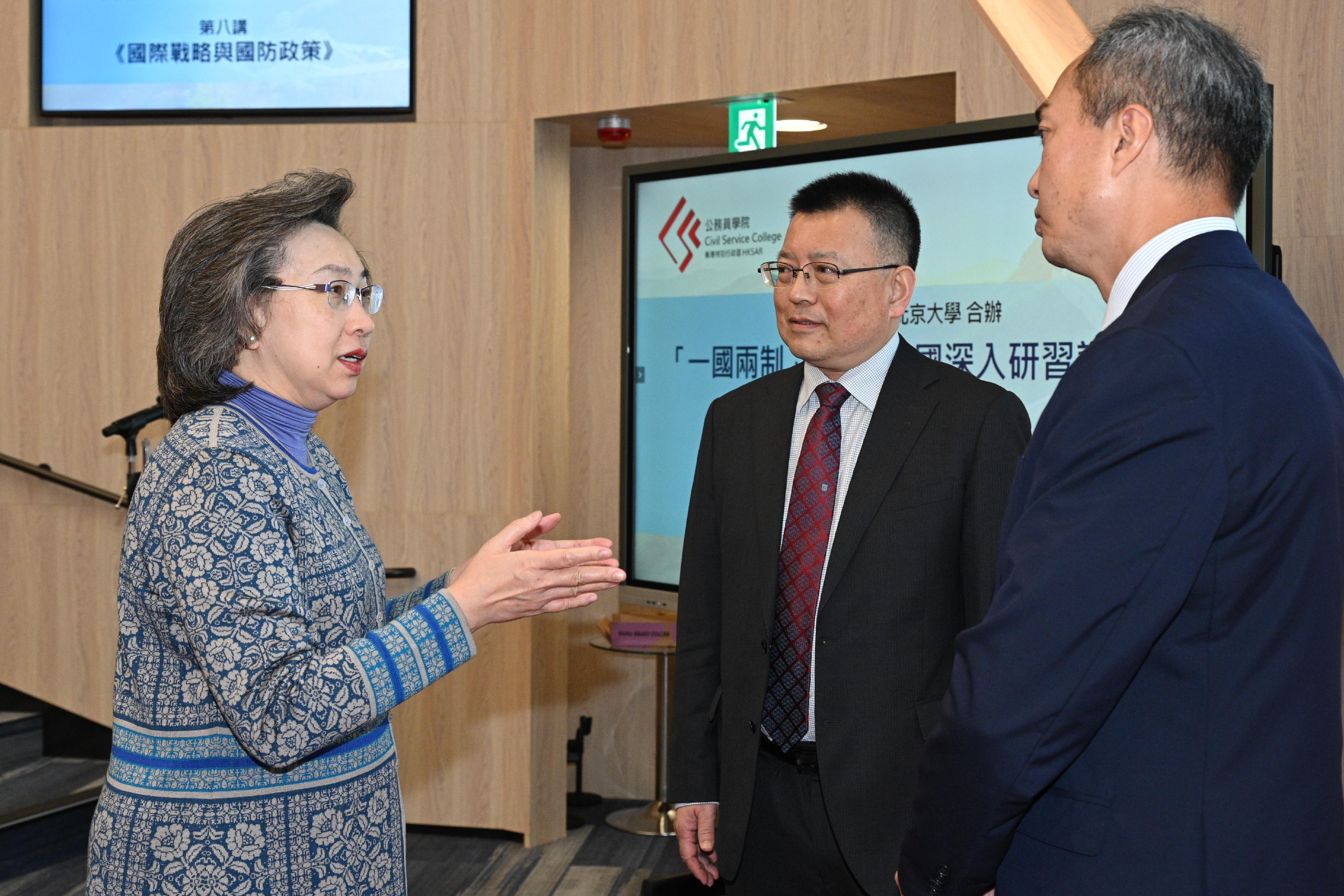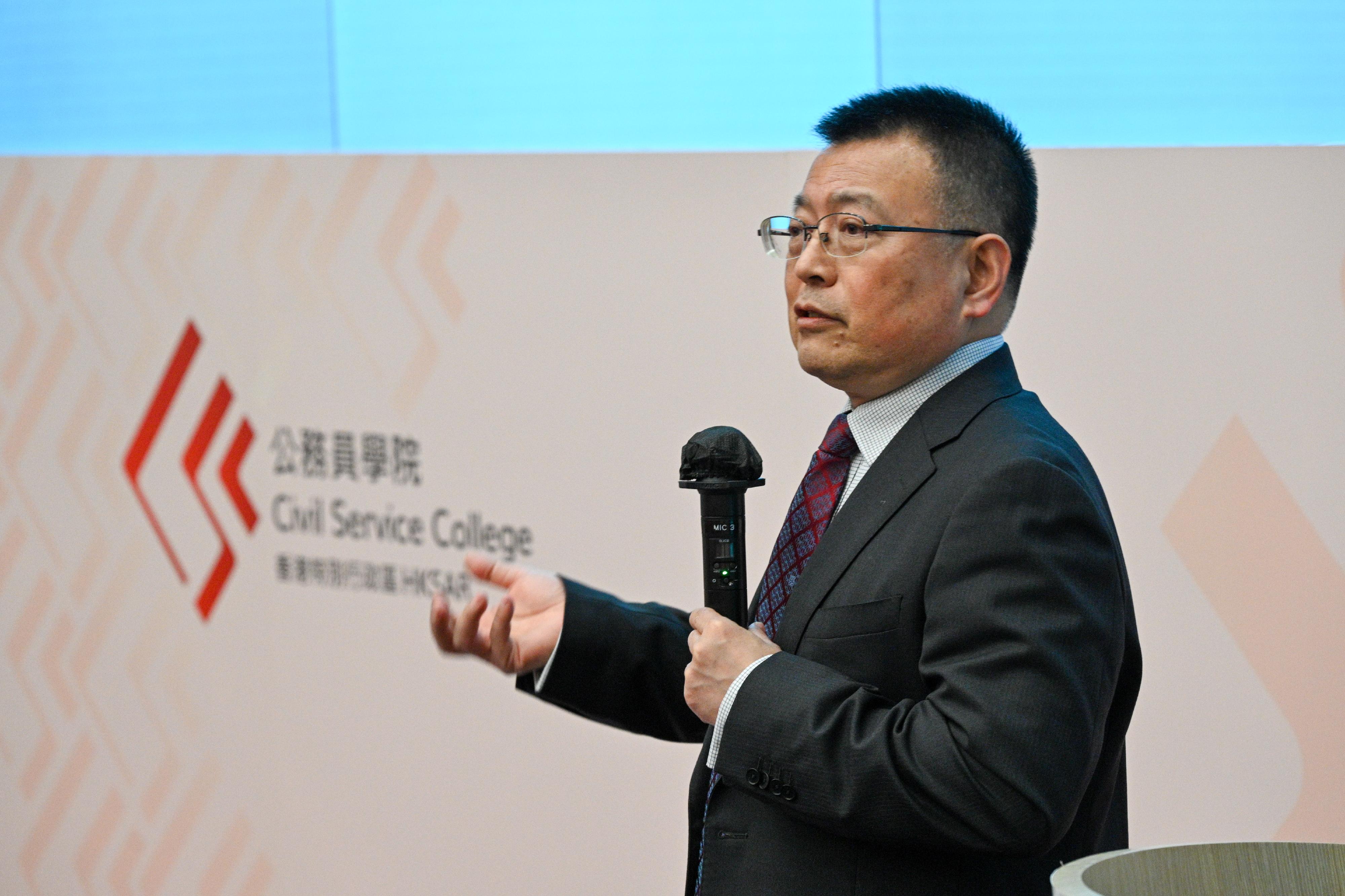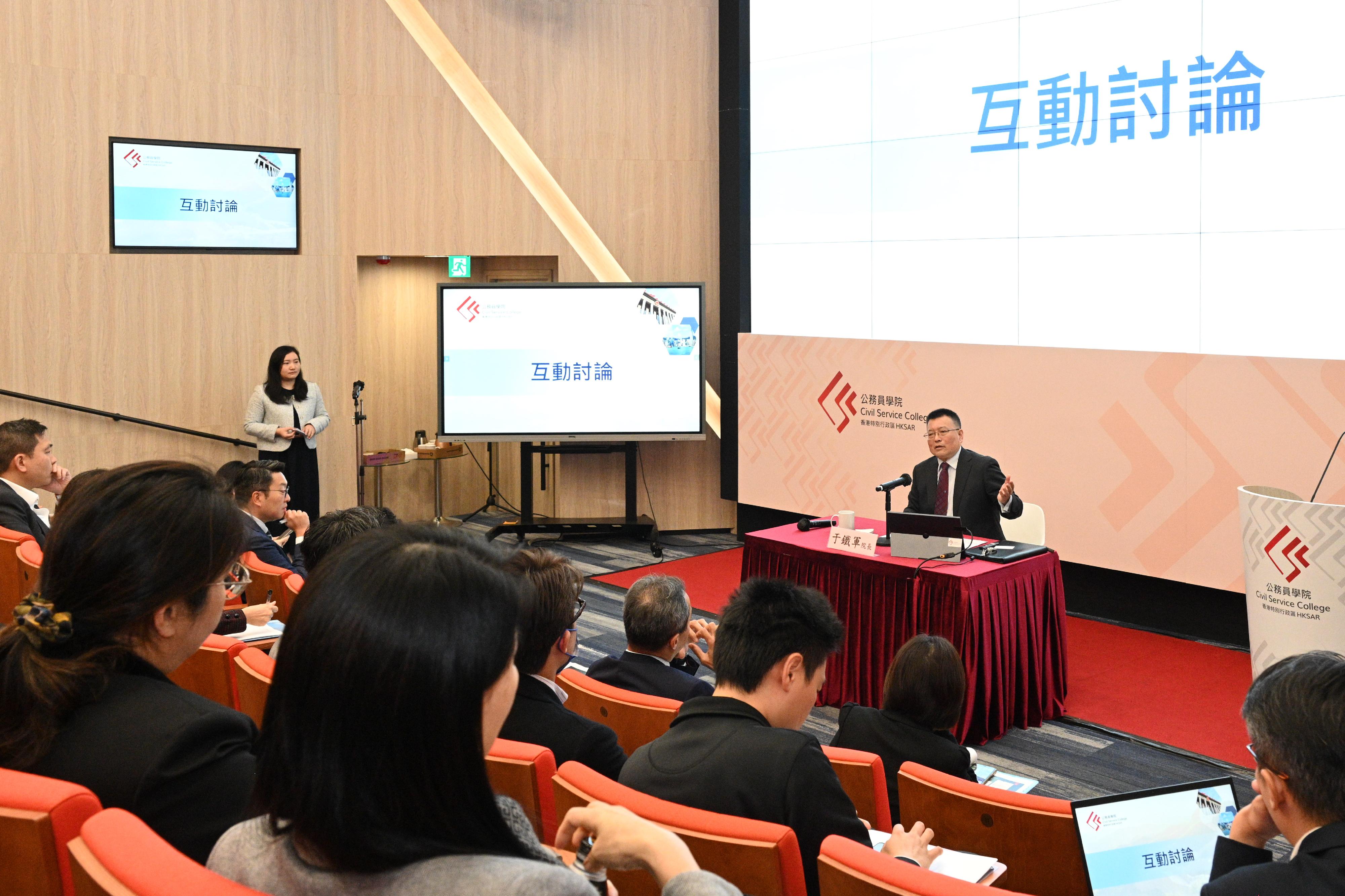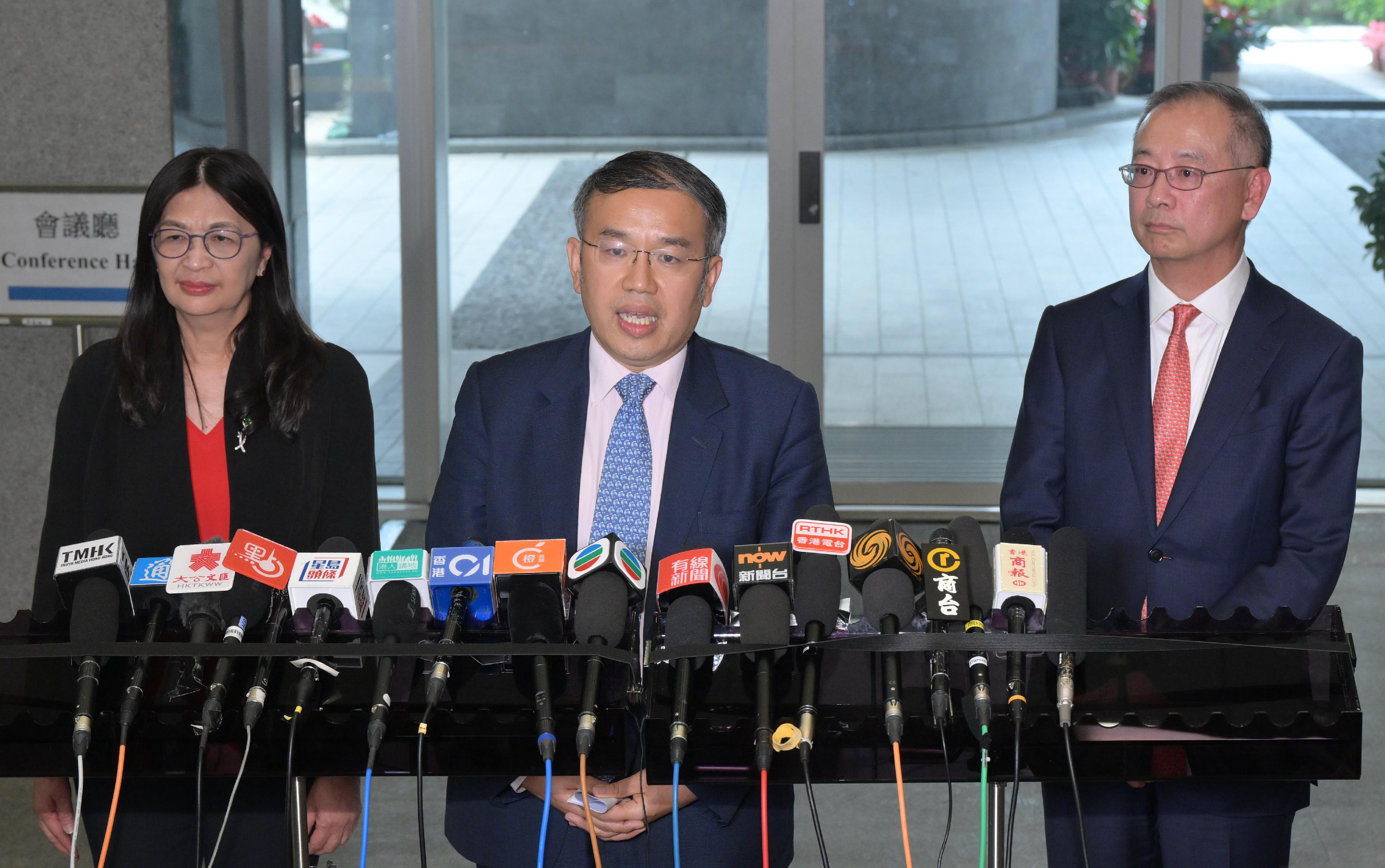Hong Kong Customs publicises Dealers in Precious Metals and Stones Regulatory Regime at precious stone exhibition (with photos)
​ Hong Kong Customs will set up a booth at the Hong Kong International Diamond, Gem & Pearl Show, to be held at AsiaWorld-Expo from tomorrow (February 27) for five consecutive days, to publicise the Dealers in Precious Metals and Stones Regulatory Regime, and will provide on-site counter services to assist non-Hong Kong dealers in submitting a cash transaction report during their participation in the exhibition.
According to the Anti-Money Laundering and Counter-Terrorist Financing Ordinance (Cap. 615), the Regime has come into effect since April 1, 2023. Any person who is seeking to carry out a business of dealing in precious metals and stones, and engage in any transaction(s) (whether making or receiving a payment) with a total value at or above HK$120,000 in Hong Kong is required to register with Hong Kong Customs and fulfil his/her anti-money laundering and counter-terrorist financing statutory obligations as appropriate.
In particular, with the expiry of the transitional period, all dealers who submit their applications for registration from January 1, 2024, onwards must successfully obtain relevant registration before they can carry out any cash or non-cash transaction(s) with a total value at or above HK$120,000.
For non-Hong Kong dealers fulfilling the prescribed conditions (including those who come to Hong Kong to participate in exhibitions), although they are exempt from registration, they are required to submit to Hong Kong Customs a cash transaction report for any cash transaction(s) (whether making or receiving a payment) with a total value at or above HK$120,000 carried out in Hong Kong within one day after the transaction, or before the dealer or the person acting on behalf of the dealer leaves Hong Kong, whichever is earlier.
Non-Hong Kong dealers can make an online submission of a cash transaction report via the Regime’s webpage at www.drs.customs.gov.hk by accessing the Dealers in Precious Metals and Stones Registration System. They can also download the related form at www.drs.customs.gov.hk/download/drsform/CED418_Form%208_Cash%20transaction%20report.pdf and then submit the report in person at Hong Kong Customs’ booth in the exhibition.
Hong Kong Customs’ booth (Booth 5-M04) is located at Hall 5 of AsiaWorld-Expo and will be open from 10.30am to 6.30pm on February 27, from 10am to 6.30pm between February 28 and March 1, and from 10am to 5.30pm on March 2.
Dealers can visit the website (www.customs.gov.hk/en/service-enforcement-information/anti-money-laundering/supervision-of-dealers-in-precious-metals-and-ston/index.html) for more information about the Regime.


